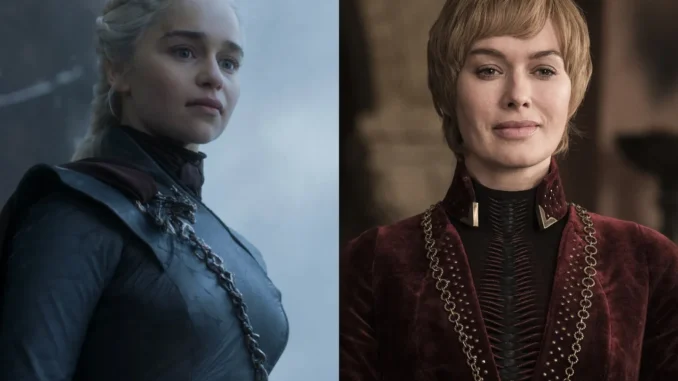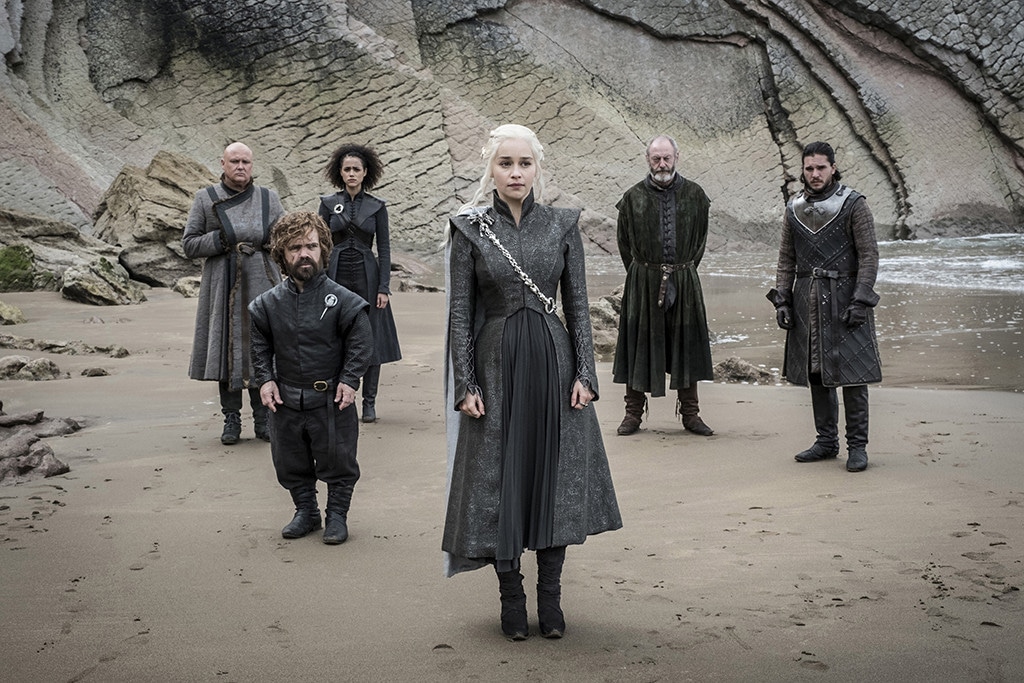
Well, Game of Thrones fans, the series finale has finally come and gone—and, boy, was it a head-scratcher. On last night’s episode, fans were shocked when (spoiler alert!) Bran assumed the Iron Throne. Yes, Bran—the same dude who turned into a crow and flew around for a bit while the walking dead were trying to overthrow the planet (a real help there). It’s safe to say he was the least likely character to come out on top: Neither fan favorite Daenerys, who was turned into a greedy madwoman and got killed off, nor Jon Snow, who killed dear Dany for the sake of Westeros, assumed the coveted post as ruler of the seven kingdoms. (Sansa, however, did become Queen of the North—a small victory to celebrate, because Sansa rules.)
The social media reactions to the series finale were anything but kind—fans went in on lazy writing and puzzling creative choices. But the biggest consensus seemed to be frustration around how the finale ignored the intricate character arches the show had been developing for eight long seasons. Depth and history, who? And it was the female characters specifically who got the worst of it. Where once the Iron Throne was poised to be won by a woman—Arya, Sansa, Cersei, and Daenerys were all likely contenders against Jon Snow at one point—the show chose to kill half of those leading ladies off instead or, even worse, make them completely submissive or indifferent. You’re truly telling me that Arya, who defeated the Night King and saved the whole world, would truly be alright with her annoying brother getting the crown IRL? And why was the fearsome Brienne of Tarth writing in some giant Wikipedia of male rulers about Jaime Lannister?

The worst of this entire season, though, were the write-off kills. Take Cersei, the much-feared villainess of King’s Landing. She spent much of season eight just staring out on the balcony, sipping her wine in anticipation of a big war (actress Lena Headey earned $1 million an episode to essentially participate in a medieval happy hour—werk). When the big showdown did finally arrive, Cersei tried to sneak away from the action like a coward, only to be crushed by her castle’s falling rubble. It was a slap in the face to take one of the show’s most deliciously bad characters and give her no action, no face-to-face interaction with the other characters, and then on top of that seal her fate with a very anticlimactic death. She deserved to suffer more, at least!
And then there’s Daenerys, who built up an entire army only to suddenly descend into total madness, using Drogon to burn everything down at King’s Landing in episode five. Her tragic downfall completely canceled out her strategic rise to queendom developed over the entire series. Surely someone with that much brain, skill, and power wouldn’t just abandon it all in favor of a fleeting feeling of anger? And if that was her fate all along, you’d think there would be more clues or foreshadowing?
In last night’s episode, Daenerys didn’t even last halfway: A single, swift stab wound from Jon Snow ended this “evil” woman, which is interesting given that other characters somehow seemed to survive sword stabs, explosions, the works. They were men, however.
Of course, I can’t say I’m totally surprised at how things panned out. The film and television industry doesn’t have a great track record of valuing its female villains in general. Characters are often more caricatures; think of someone like Poison Ivy in the Batman movies, who says things to her victims like, “Come join me. My garden needs tending.” There has been a bit of progress with recent shows like Killing Eve, whose psychotic-assassin character, Villanelle (played by Jodie Comer), is one of the most scrumptious characters on TV right now.
Yet, on Game of Thrones, that opportunity to have a woman come out on top—and one who wasn’t even entirely good, a human even!—was severely missed. The momentum was there, the excellent performances by its actresses were there, but the wrap-up, as it often does, favored the show’s male characters. Ty-pi-cal.
